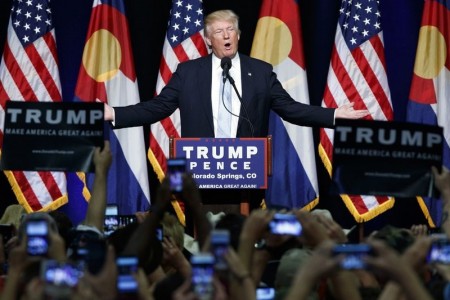Widgetized Section
Go to Admin » Appearance » Widgets » and move Gabfire Widget: Social into that MastheadOverlay zone
Postelection Transitions
The views expressed are those of the author and do not necessarily reflect the views of ASPA as an organization.
By Jeffrey Zimmerman
November 29, 2016
This postelection transition is different from previous transitions for several reasons. Most notably are the volume and number of protests across the country as well as the safe spaces designated at our colleges and universities for students to deal with their emotions after the result of the election. We should not be surprised by the increase in protests based on the election results. Our country has witnessed an increase in the overall volume of protests, particularly with law enforcement officer shootings. Another reason for the people protesting president-elect Trump is that he is a polarizing figure and appears to be blunt and divisive with the topic of his speeches and many other comments made throughout the campaign season. The question that needs to be answered in the coming weeks is: Will president-elect Trump’s transition to the White House be impacted significantly by the messages from the protests and the responses to how president-elect Trump carries himself?
In a 2014 Center for the Study of the Presidency & Congress article titled “Barack Obama’s Transition and first 100 days,” Martha Joynt Kumar postulates that when Barack Obama assumed the Presidency January 20, 2009, he had his senior White House staff in place, a detailed policy agenda queued up, and a personnel process well underway. Within his first month, the new President signed three major pieces of legislation, nine Executive Orders, and nine presidential memoranda covering a broad range of subjects. By the 100-day mark, the Obama administration was well on its way in terms of nominations announced and confirmed by the Senate and executive branch personnel in place and working to implement the president’s program.
While there were, and continue to be, criticisms that the Obama agenda was too broad, the president got off to an unusually effective start. President Obama has publicly stated that he will support president-elect Trump’s transition into the White House as President G.W. Bush did for him in 2008-2009. The argument can be made that Mr. Trump should listen openly and carefully to the advice that Mr. Obama will give him. This is a moment where political differences must be put to the side in the interest of moving the country forward.

Will president-elect Trump be able to have this level of success with his transition and subsequently during his first 100 days? Only time will tell. However, we can look at some of his early selections for his cabinet level positions and speculate how these nominees will be received by the public.
First, Rudy Giuliani was hinted to be selected for Secretary of State. Not long after this was announced, there were reports of suspicious activity between Giuliani and foreign countries. Next, Reince Priebus was named as Trump’s chief of staff and immediately announced that the administration will seek a ban on all Muslims. Uncovering of information, as in Giuliani’s case, is not unusual when presidents are getting ready to assume control of the White House and must name cabinet members for the nomination process. However, in the case of Trump and his interest in “Making America Great Again” by securing the borders and the rest of his campaign platform, he seems to be dividing the country down political party lines.
The rhetoric in Mr. Trump’s campaign and platform appear to be so divisive and incendiary that it seems like his administration will most certainly have an uphill battle of transitioning into the White House as well as attempting to be successful in his first 100 days in office. I am not advocating that Mr. Trump cease his activities or his plan for transitioning to the presidency. After all, he was elected president and many voters agree with his message.
I am suggesting that Mr. Trump sit down with his closest advisors in his soon to be administration to discuss how he will transition into his presidency, how he will address the concerns of our nation adequately and how he will garner bipartisan support to accomplish what he is setting out to accomplish. Without bipartisan support in both the Senate and House of Representatives, his transition into the White House—and his first 100 days—will surely end up as a failure. The media and the nation will focus on these failures instead of what he was elected to do – lead the greatest nation in the world.
Author:Jeffrey R. Zimmerman, Ph.D. in Public Policy and Administration from Walden University. Zimmerman is an adjunct professor in the graduate public administration program at Strayer University. Email: [email protected].


Follow Us!